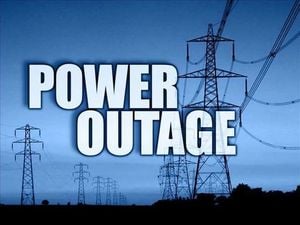A week after Election Day, President-elect Donald Trump and his transition team have named several nominees and appointees for the second Trump administration, comprised of MAGA loyalists who are overwhelmingly white and some of whom have a history of trafficking in racism or hostility toward equity programs. "These are people whose main goal is to make sure we ‘Make America White Again,’” Democratic strategist Ameshia Cross told theGrio.
Cross noted Trump's campaign actively capitalized on white supremacy and highlighted his intention to install party loyalists who would enact policies detrimental to racial equity. She emphasized, "To say this was about the economy is misleading when you see who has been appointed. Economic anxiety is often intertwined with racism, xenophobia, and anti-Black sentiment. Anti-Critical Race Theory (CRT) and anti-Diversity, Equity, and Inclusion (DEI) sentiments also play roles here.
Former U.S. Congressman Mondaire Jones, now part of the U.S. Commission on Civil Rights, expressed his alarm about Trump’s selections. He stated, "Donald Trump made very clear over the course of the campaign and his last presidency he’s got no problem surrounding himself with white nationalists. What we see are extremists advancing policies resembling those of white nationalists.”
Maya Wiley, who once ran for mayor of New York, described Trump’s picks as predictable based on the explicit racism and sexism present during the electoral campaign. Wiley noted the incoming administration's reliance on the Heritage Foundation’s Project 2025, which aims to institutionalize right-wing policies. She asserted, “We see plans from people who clearly want to weaponize government to protect the status quo. I don’t think this is surprising.”
Organizations working for civil rights and Democratic officials anticipate the new administration will pursue initiatives from this controversial project. Svante Myrick, president of People For the American Way, echoed the concerns, saying Trump’s nominees appear “grossly underqualified” and showed only blind loyalty to the former president.
People are likely to witness swift actions reflecting Trump's prior rhetoric and commitments coming to fruition. Myrick recalled, "He promised he didn’t know anything about Project 2025 or its authors, yet we can already see the alarming shifts he will aim to implement. The country will find these sudden changes shocking.”
Among the appointees, Trump announced Robert F. Kennedy Jr. as secretary of the Department of Health and Human Services, which supervises significant agencies like the CDC and FDA. This decision drew widespread criticism due to Kennedy’s prior promotion of false conspiracy theories concerning vaccines and COVID-19, including claims of them targeting certain racial groups.
Kennedy's assertions, including his controversial comments claiming COVID-19 attacks Caucasians and Black people most severely, has alarmed health experts who have refuted such unfounded statements. Daniel Dawes, of Meharry Medical College, emphasized there's no scientific backing supporting Kennedy's claims, warning, “We’ve never adequately addressed misinformation, particularly relating to marginalized communities. It could pose even greater risks for future public health crises.”
Next on the list of controversial nominees is U.S. Rep. Matt Gaetz from Florida, picked to lead the Justice Department. This choice raises eyebrows as Gaetz himself faced scrutiny over federal investigations related to sex trafficking, which, paradoxically, did not result in criminal charges against him. His elevation to attorney general could shake the foundations of justice at the federal level if confirmed by the Senate.
Back at the local level, the political climate remains tense. A noteworthy incident occurred following Trump’s re-election, highlighted by the termination of Hancock County Deputy Prosecutor Jordan Stroh. Stroh was fired after expressing her disdain on Facebook for those voting for Trump, emphasizing how divisive his presidency has been.
Prosecutor Brent Eaton elaborated on Stroh's dismissal, indicating she violated the office’s mission and values. He called her comments politically discriminatory and noted such bias had no place within the justice system. Eaton's commentary reflects broader sentiments shared by many who feel the current political discourse is deeply fractured. He commented on how discriminatory language can lead to mistrust among the communities served.
Stroh defended her comments as personal expressions separate from her professional role, expressing disappointment over her termination and the political pressures surrounding it. She felt her statements did not interfere with her duties as a fair and impartial prosecutor.
This turmoil demonstrates how Trump's return to the Oval Office has deepened existing divides among political allies and opponents. The fervor around his policies and commentary has left many feeling jubilant or fearful, setting the stage for challenging months as new leadership steps forward. How the new administration will reconcile these tensions remains uncertain.
With the Trump administration about to kick off, anxieties around potential political backwardness are palpable, especially among communities of color, LGBTQ individuals, and other marginalized groups. The selection of individuals with contentious pasts raises alarms about future governance and the treatment of vulnerable populations.
The incoming administration's commitment to continuing or reversing past policies will be closely monitored by civil rights advocates, who already recognize the threat these appointed officials could pose if their backgrounds align with what many deem antithetical to equity and social progress.



